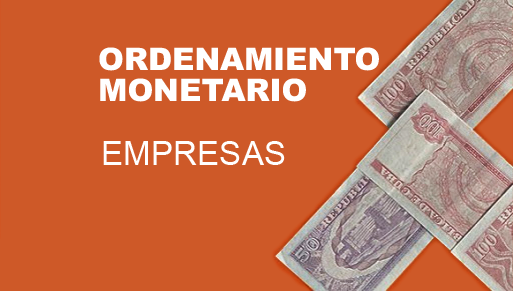
17 Dec, 2020
The Monetary Order of the socialist state enterprise
The monetary and exchange system in Cuba has an interdisciplinary and transversal nature and includes monetary and exchange unification, the elimination of excessive subsidies and undue gratuities, as well as the transformation of income. The application of this process is an urgent need and an essential step to advance the economic and social strategy of the country.
As the Cuban president, Miguel Díaz-Canel Bermúdez, said in the Round Table space: “monetary and exchange unification is not the magic solution to economic and financial problems, (…) but it should lead us to increase the productivity of the work and a more efficient performance of the productive forces ”.
The Organization of the economy is necessary and more with the consequences that the year 2020 has brought for the country, where the Gross Domestic Product of Cuba decreased 11%, according to estimates valued at constant prices, due to the strong contraction of foreign trade, the reduction of international tourism and foreign exchange earnings, due to the effects of COVID-19 and the tightening of the blockade.
This was reported by the Deputy Prime Minister and Minister of Economy and Planning, Alejandro Gil Fernández, during the Sixth Ordinary Period of Sessions of the National Assembly of People's Power, in its IX Legislature, by exposing the expected behavior of the 2020 economy plan and projections for next year.
The Ordering Task has been a planned strategy that has been worked on for some years, says Gil Fernández, and whose implementation has been characterized by the creation of the ideal conditions, especially in the development of the state sector.
Regarding this sector, the Head of the Commission for Implementation and Development of the Guidelines, Marino Murillo underlines that, given the upcoming changes, the new rules of the game are more transparent and even for all economic actors and recalled that the devaluation of the currency seeks to achieve greater competitiveness.
He also reiterated that a devaluation always makes imports more expensive, which is reflected in prices. He added that not only will there be a devaluation, but also subsidies will be eliminated and wages increased. "If it were only to devalue the business system, the matter would be more complex, but the framework covers several spheres."
Murillo Jorge insisted that the change in the exchange rate from 1 CUP x 1 USD to 1x24 causes an increase in the prices of imported products. For example, what Cuba imported last year for 9.9 billion, now it becomes 237 billion in CUP and that makes raw materials for the business sector more expensive.
In his opinion, the Ordering Task demands more responsibility and efficiency from the business system, but new opportunities also appear, which the business community must take advantage of.
Among the new opportunities is one related to the total expense structure of the Cuban business system. In an environment of devaluation, he continued, imported raw materials with a cost share of 89 percent go to 28 percent, and domestic from 34 to 18 percent. When national costs are cheaper than imported costs, it must contribute financially to the true substitution of imports, with this, the market will begin to give different signals to the economy ”.
Many companies will receive support from the State, which translates into some 18 billion pesos in the Budget as a reserve to protect the business system, because the management task does not intend a massive bankruptcy of companies and that unemployment is generated.
In the last two years the possibilities of business management have increased. The new economic strategy includes measures that favor this management, among which are the faculty of price formation; centralized prices of transversal products and services as an anti-inflationary mechanism; the increase in the salary scale, and the flexibility in the distribution of profits.
In that sense, he pointed out that “it was essential to carry out the salary reform and raise the scale, (…) the salary scale was increased and piecework wages are maintained as a mobile payment of wages, but the most important mobile income of companies is the distribution of profits ”.
In a first approach in the formation of wages, it must be taken into account that the worker must know the occupational category to which he belongs as reflected in the profesiogram of each one of them. In the country there are 5 occupational categories that are: operator, services, technical, administrative and cadre. According to the Occupational Category, it will be the Complexity Group and thus the salary to be received.
The Official Gazette in its Extraordinary Edition number 69 specifies that workers whose current salary is higher than the salary after the Ordinance task, their previous salary, exceptionally, will remain:
Special provisions: GOC-69 of December 10, 2020
FIRST: Exceptionally, maintain the income received by workers in amounts greater than those resulting from the increase provided herein, while they remain in the position they hold at the time of the application of the general wage reform.
SECOND: The income referred to in the previous Special Provision corresponds to the average of the amount earned by the worker in the best six months of the 24 preceding the application of the general wage reform; includes those corresponding to the basic salary and the stimulation in convertible pesos for efficiency indicators, converted into Cuban pesos.
In this way, what the President of the Republic of Cuba, Miguel Díaz-Canel said, is fulfilled: “no one will be left helpless and it is planned if someone were to be left in a vulnerable situation with the application of the task ordering how they will be supported and helped. We responsibly ratify that the fundamental achievements of the Revolution will be preserved "

